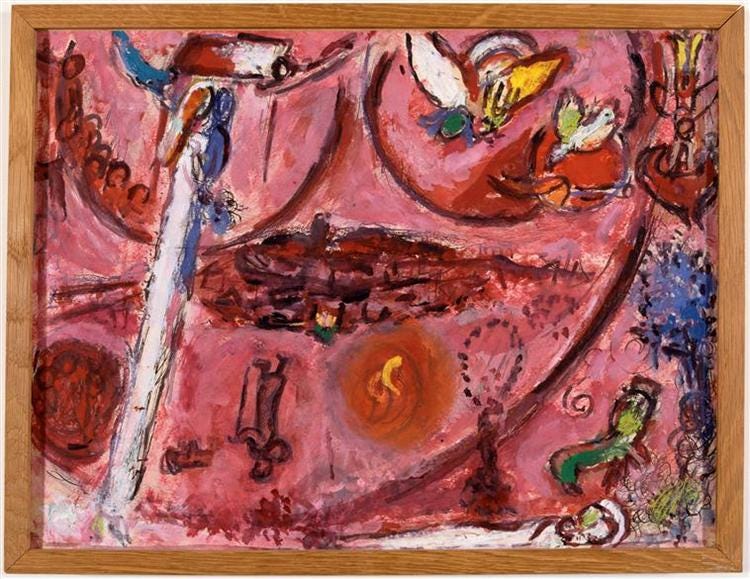“He for Me and I for Him”
On lovemaking out of doors as an image for the love of God and his people
Reminder: Our Adventures in Barth online series will resume tonight at 7:00 EST. Apologies for last week— I had an oncologist appointment that ran late and then…traffic.
The Old Testament lectionary passage for this coming Sunday is from the Song of Songs 2.8-13.
The erotic poem is neglected in much of the contemporary church, yet it was a crucial scripture for the ancient church who found in its dialogue between lovers a lens into the perichoretic love of the triune identity.
The theologian Robert Jenson dared to write a commentary on the Song of Songs and, unsurprisingly, it does not disappoint.
Jens writes:
The poem brings to the surface an underlying motif of the Song’s general construal of reality: whenever in the Song the lovers step outdoors or imagine themselves there, they enter an Eden, a nature furnished only with beautiful” fruitful, and sweet-smelling flora and populated by fauna far from red in tooth and claw, where even rainy weather appears only as something just past that brought the flowers. Also the comparison of the lover to roe-stag or gazelle, instead of, for example, lion or stallion—far greater compliments in macho societies—evokes the freedom and harmlessness of beasts in that first garden.
The love between the Lord and Israel is conflicted like all loves that must play out in this age, and other poems of the Song’s show that. Yet where the Lord is, there is what Christians have come to call “heaven”: the anticipation with God of the final kingdom and just so of Eden’s fulfillment, of the beautiful and peaceable kingdom.
Where the Lord comes, in the reading of Torah or the celebration of Eucharist or in any of a hundred events of his “real presence” among his people, something of the final and first-intended fulfillment opens to our experience; we are in “the gate of heaven,” as Martin Luther described the church. We have one foot in perfected Eden. And there we are even now one with the Lord.
We should note also that in this poem, unlike some others in the Song, it is the Lord who initiates his and Israel’s coming together. He runs to Israel and, standing outside the door like a lovestruck youth, implores her to come out. One need not approve all that piety has made of “Behold, I stand at the door and knock” (Rev. 3:20) to think of this saying of the risen Lord.
The theology allegorically solicited by this passage is thus more a theology of prevenient grace than is that of the opening poem.
Keep reading with a 7-day free trial
Subscribe to Tamed Cynic to keep reading this post and get 7 days of free access to the full post archives.


